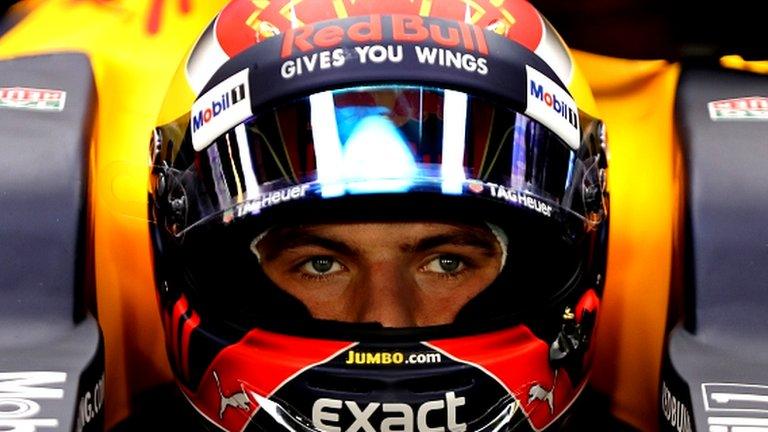Formula 1 drivers' union gets '100%' membership due to concerns over future
- Published
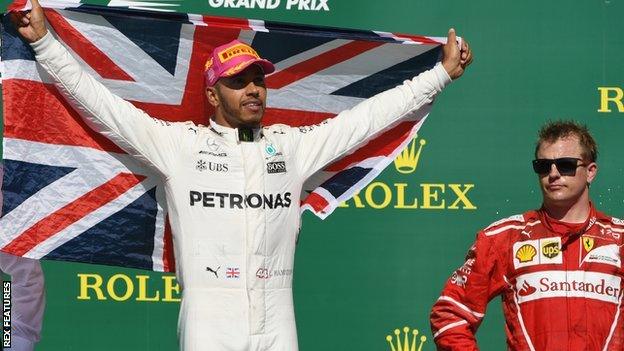
Lewis Hamilton and Kimi Raikkonen were among those who had not officially joined the GPDA in recent years
Formula 1 drivers have unanimously signed up to their union because of concerns over the future of the sport.
Alexander Wurz, chairman of the Grand Prix Drivers' Association, said the organisation had 100% membership "for maybe the first time in history".
Wurz said all drivers had now joined the GPDA because "F1 is entering a period of evolution, change and perhaps even a degree of turmoil.
"They recognise they must be united and represented to face that challenge."
World champions Lewis Hamilton and Kimi Raikkonen were among those who had not officially joined the GPDA in recent years.
Wurz, a former F1 driver for the Benetton, McLaren and Williams, said the drivers wanted to "prevent any politics or power fights from ultimately compromising on-track performance. The drivers believe unity is fundamental for the sport's success".
Why this and why now?
F1 is entering a period of intense political negotiations as the teams come to the end of the contracts that bind them to the sport, which for the large part expire in 2020.
The end of the F1 season was marked by increasing concern about the plans of new owners Liberty Media, the US group that bought the sport's commercial rights in January.
The teams' income has dropped, they are being asked to take part in promotional events at their own expense, Liberty has been unclear about where it wants to take the sport and the car manufacturers in F1 have objected to plans to use a different type of engine from 2021.
Wurz said the drivers had been pleased about the effects of rule changes for the 2017 season, before Liberty took over.
These made the cars faster, harder to drive and more dramatic, and the tyres more durable so the drivers can race harder for longer. The drivers were instrumental in pushing for these changes.
"We are all particularly proud that the new cars, with their faster cornering speeds, had such great effect," Wurz said. "The drivers love them and we have seen an instant increase in viewership and followers.
"The GPDA pushed for this rule direction for the last three years. Happy drivers are F1's best sales tool."
But the drivers continue to have a number of areas of concern. Among these are:
the increasing use of asphalt run-off areas and subsequent abuse of track limits
the rise of pay TV and fewer viewers/followers as a result
over-regulation and the penalty system
the difficulty of overtaking and lack of track action
negative press spirals due to political fights via the media
the lack of noise from engines
badly thought-out television camera angles that do not portray the speed and drama of the cars
the differences in the budgets between the leading and other teams and the resulting gaps in performance
Wurz said: "We are glad that Liberty and their technical research team followed the GPDA's suggestion from more than a year ago, where we wished for a less sensitive airflow concept of aerodynamic-related rules in order to be able to race closer. That's just one example and one of many the drivers have in mind."
He added: "We don't need a seat at the table, because the drivers are in the driving seat anyhow. Besides, I would be surprised if any of the key stakeholders would invite the drivers to the F1 decision-making table.
"The GPDA demands only that the sport remains the centre of attention and we want to hold everyone in the decision-making process accountable for their actions and decisions.
"All adjustments to the sport should only be done and conducted in the best interest of the sport and not of any one individual. This is what unites the drivers; the sheer will to keep F1 as the pinnacle of motor racing."
'Business and politics have damaged F1 enough'
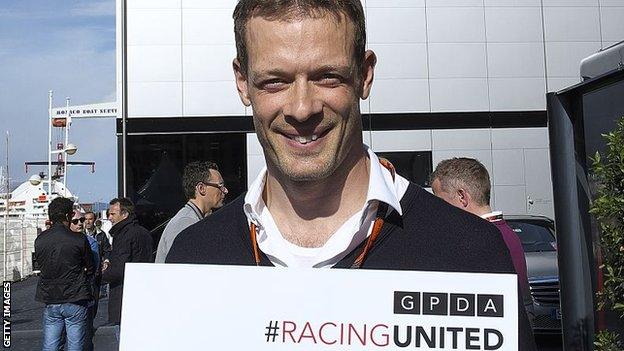
Former F1 driver Alexander Wurz has been chairman of the GPDA since 2014
The drivers intervened with the sport's bosses at the end of 2015 because of concerns that the tyres Pirelli was supplying at the time were preventing them racing properly, as they needed extreme levels of management.
The more resilient product supplied by Pirelli for this season after governing body the FIA set the company targets for tyre behaviour has made the racing more authentic in 2017.
The drivers also pushed for increased head protection, which is being introduced next season - a year later than initially planned - with the controversial 'halo' device.
But the drivers are still wary about the purity of the sport being diluted if rule changes go in the wrong direction.
Wurz said the drivers saw the biggest risk as being "mainly diminishing the key values of F1: a sport, a motor race where the best driver wins and battles it out in the fastest race cars on the coolest tracks in close-fought competition".
He added: "We have so many - and now too many - contributing factors which dilute this simple core value, and every day the list of threats to F1 grows.
"Thank God the underlying product is so strong, but previous business decisions and political power battles have already scarred the sport, so it needs very careful and considerate adjustments to the sport and its rules.
"But also F1's business model cripples the sport's progress and would need readjustments."
Wurz said the drivers wanted to see "on-track competition, but not artificially created".
He added: "We can't be naive about the situation F1 is in, with its complicated governing rules and agreements between various key stakeholders.
"Business decisions and political power fights have damaged the sport enough at exactly such vulnerable times over the last decade.
"But the GPDA has repeatedly said that the on-track action needs to be better, more closely fought and authentic."
- Published8 December 2017
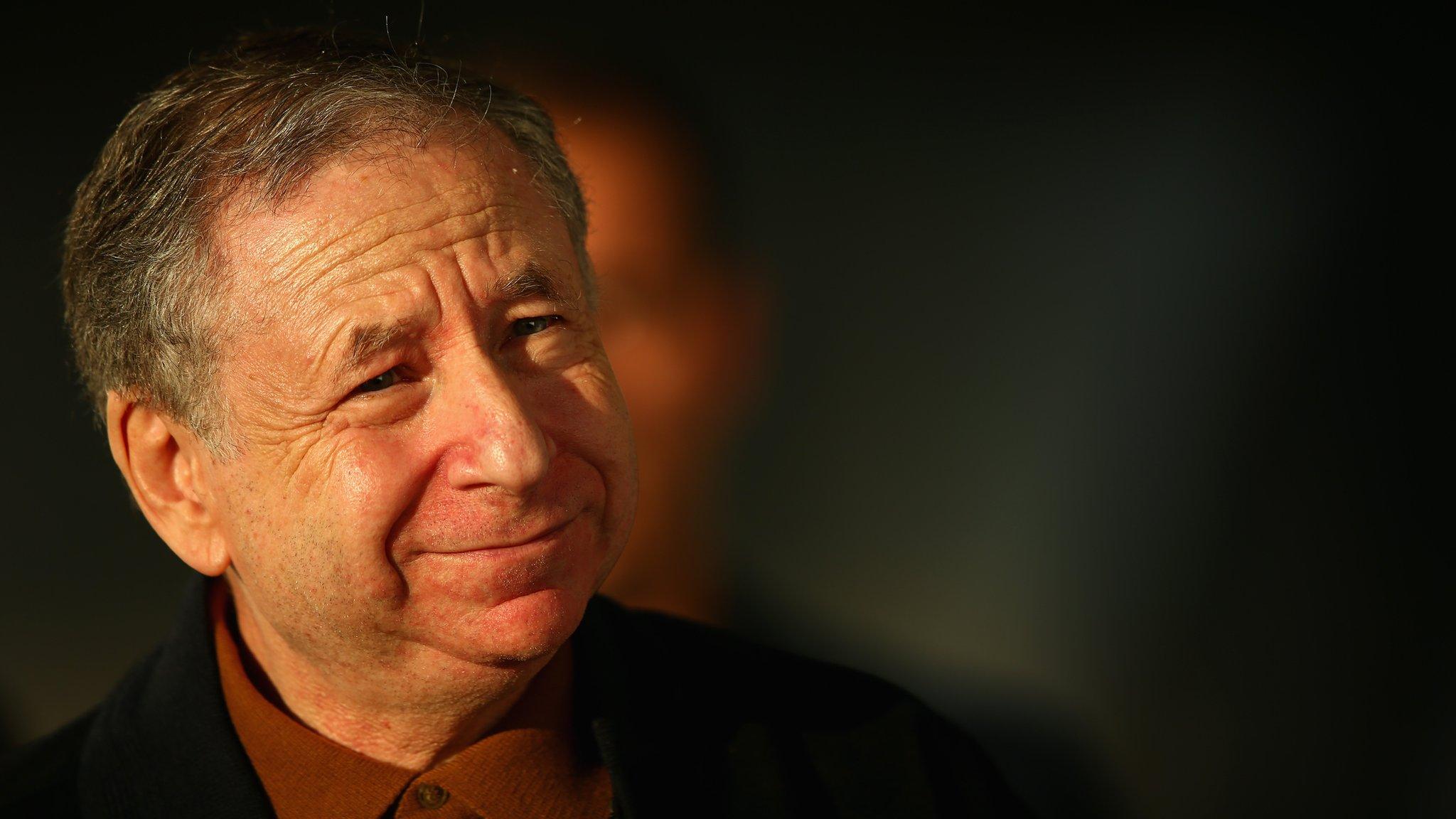
- Published8 December 2017
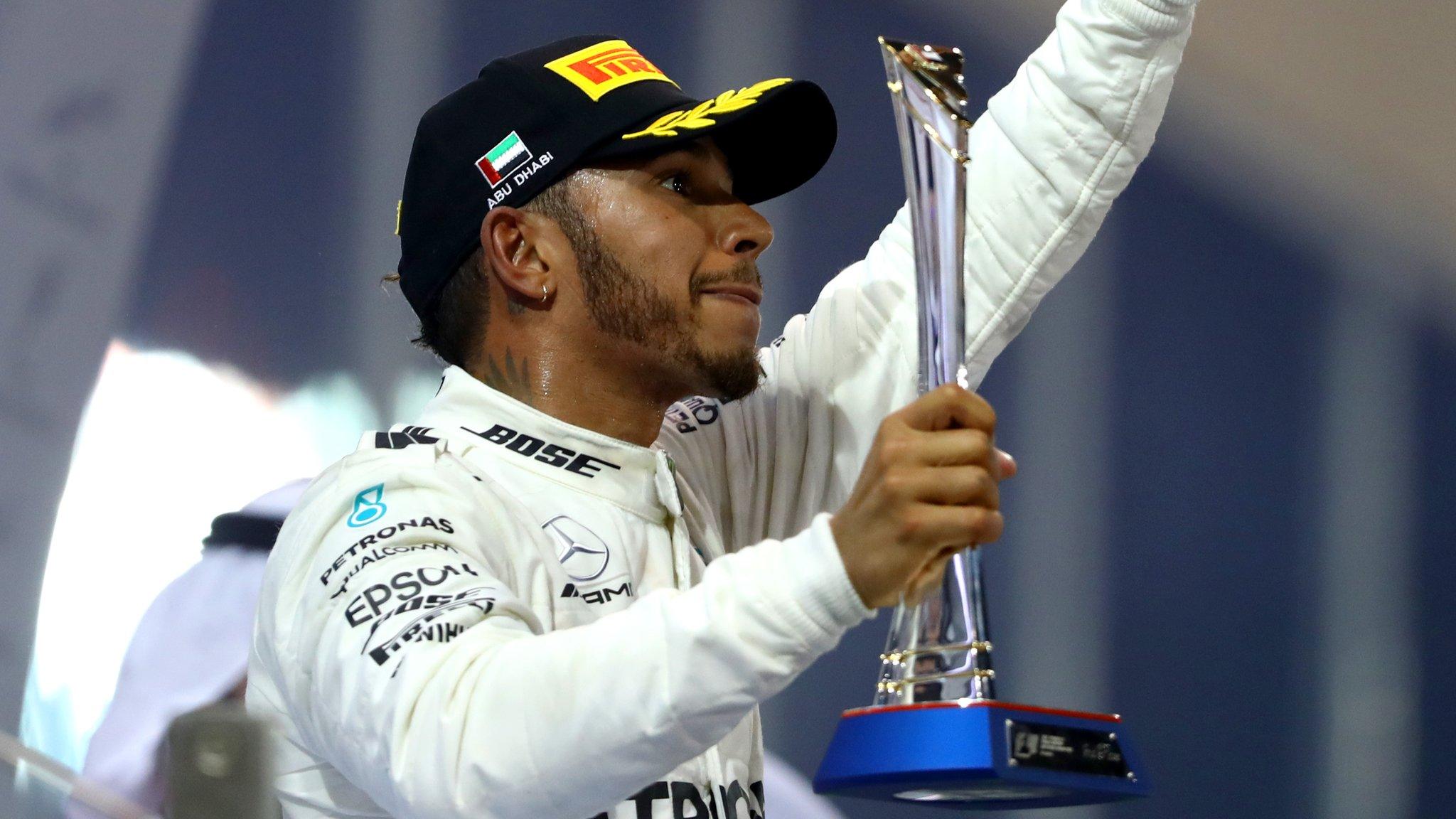
- Published6 December 2017
